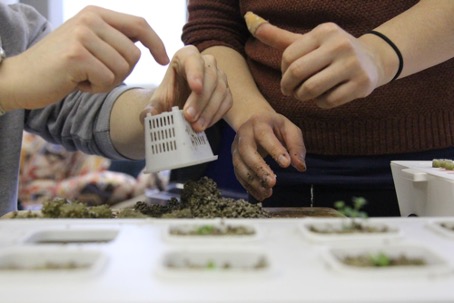Feeding more people by optimizing farming practices is the goal of researchers at Linköping University in Sweden.
Their work has led to the development of an electronic soil for hydroponic cultivation. They exposed roots to a conductive substrate and observed a growth rate one and a half times higher within the first fifteen days.
The substrate is composed of cellulose enriched with a conductive polymer, Pedot. The mechanisms are still not fully understood, but researchers speculate that the seedlings have a better ability to process nitrogen under these conditions. In comparison to previous trials, this electronic soil consumes less energy.
Hydroponic farming may not have the capacity to produce in sufficient quantities, but this discovery enhances the interest in this cultivation method, particularly in areas with limited arable land.
Source: Futurasciences




